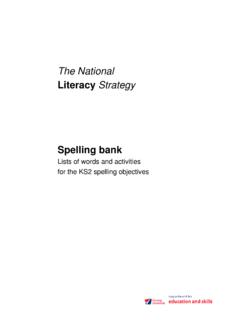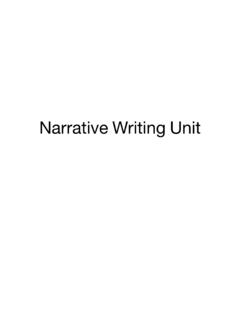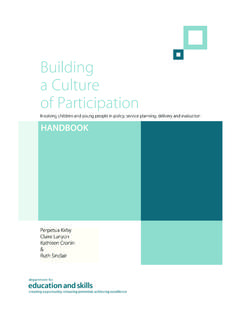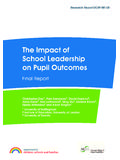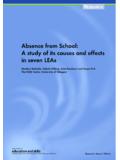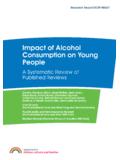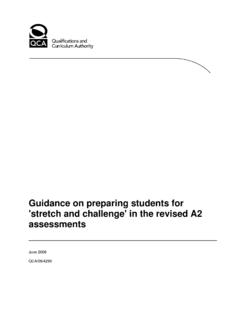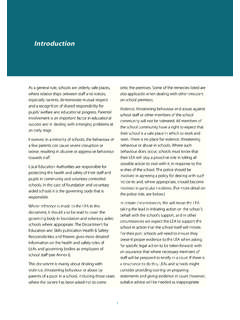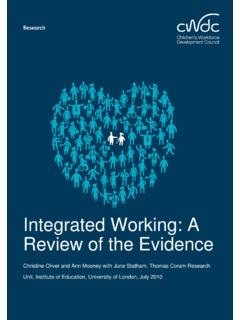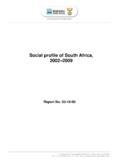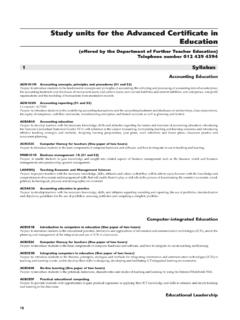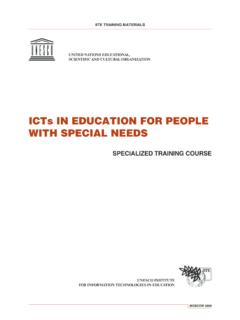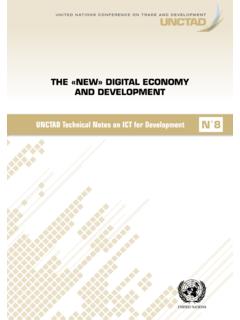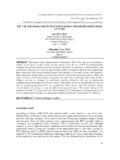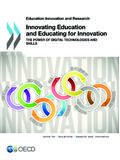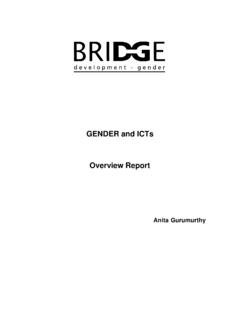Transcription of A review of the research literature on barriers to the ...
1 A review of the research literature on barriers to the uptake of ict by teachers A review OF THE research literature ON barriers TO THE UPTAKE of ict BY TEACHERS British Educational Communications and Technology Agency (Becta) June 2004 Version 1, June 2004 page 1 of 29 Becta 2004 Becta | A review of the research literature on barriers to the uptake of ict by teachers A review OF THE research literature ON barriers TO THE UPTAKE of ict BY TEACHERS ACKNOWLEDGEMENTS This report was researched and written by Andrew Jones, Project Manager for Evidence and Dissemination in the Evidence and Educational research Team, Becta, together with support from colleagues in the team. Becta would like to thank Professor Margaret Cox, of Kings College, London, and Peter Scrimshaw, independent consultant, for their comments and support in the production of this review . Version 1, June 2004 page 2 of 29 Becta 2004 Becta | A review of the research literature on barriers to the uptake of ict by teachers barriers TO THE UPTAKE of ict BY TEACHERS EXECUTIVE SUMMARY This report brings together evidence from a range of sources on the actual and perceived barriers to the uptake of ict by teachers, as identified in a review of some of the available literature associated with teachers use of ict , and also by education practitioners who took part in a small scale survey, carried out by Becta.
2 It is published in conjunction with a companion report looking at the factors which enable teachers to make successful use of ict (Scrimshaw, 2004). The key findings of this report are: A very significant determinant of teachers levels of engagement in ICT is their level of confidence in using the technology. Teachers who have little or no confidence in using computers in their work will try to avoid them altogether. (Dawes, 2000; Larner and Timberlake, 1995; Russell and Bradley, 1997.) There is a close relationship between levels of confidence and many other issues which themselves can be considered as barriers to ICT. For example, levels of confidence and therefore levels of ict use are directly affected by the amount of personal access to ICT that a teacher has (Ross et al., 1999; Cox et al., 1999; Guha, 2000), the amount of technical support available (Cuban, 1999; Bradley and Russell, 1997), and the amount and quality of training available (Pina and Harris, 1993; Lee, 1997).
3 Levels of access to ICT are significant in determining levels of use of ict by teachers (Mumtaz, 2000). However, it is not necessarily the case that a school with low access does not have enough equipment; it may be that the amount of equipment is adequate but inappropriately organised in the school. Equipment should be organised in such a way to ensure maximum access for all users (Pelgrum, 2000; Fabry and Higgs, 1997). Inappropriate training styles result in low levels of ict use by teachers. Courses which lack pedagogical aspects are likely to be unsuccessful (Veen, 1993), but there also needs to be an element of ict skills training (Preston et al., 2000). Teachers are sometimes unable to make full use of technology because they lack the time needed to fully prepare and research materials for lessons, particularly where this involves online or multimedia content. Time is also needed for teachers to become better acquainted with hardware and software. (Fabry and Higgs, 1997; Manternach-Wigans et , 1999.)
4 Technical faults with ICT equipment are likely to lead to lower levels of ict use by teachers. Recurring faults, and the expectation of faults occurring during teaching sessions, are likely to reduce teacher confidence and cause teachers to avoid using the technology in future lessons (Bradley and Russell, 1997). The lack of available technical support is also likely to lead to teachers avoiding ICT, for fear of a fault occurring that Version 1, June 2004 page 3 of 29 Becta 2004 Becta | A review of the research literature on barriers to the uptake of ict by teachers cannot be rectified and lessons being unsuccessful as a result (Cuban, 1999; Preston et , 1999). Resistance to change is a factor which prevents the full integration of ict in the classroom. This resistance can be seen in terms of teachers unwillingness to change their teaching practices, and also in terms of schools as institutions finding it difficult or being unable to re-organise in ways which facilitate innovative practices involving ICT.
5 (Albaugh, 1997; Cuban et , 2001.) Teachers who do not realise the advantages of using technology in their teaching are less likely to make use of ict . Any training programme needs to ensure that teachers are made aware of the benefits of using ICT. (Cox et , 1999.) Little evidence was found in the literature to support the view that age affects levels of teachers ICT use. Younger teachers are no more likely to make use of ict in their work than their more experienced colleagues (Bradley and Russell, 1997). There is some evidence to suggest that teachers gender has an effect on the degree to which they use ICT, with male teachers making more use of ict than female teachers, and with female teachers reporting greater levels of computer anxiety than male teachers. This may have a significant negative effect on the use of ict in primary schools, where there are more female teachers than male teachers. (European Commission, 2003; Bradley and Russell, 1997.) There are close relationships between many of the identified barriers to ICT use; any factors influencing one barrier are likely also to influence several other barriers .
6 For example teacher confidence is directly affected by levels of personal access to ICT, levels of available technical support and the amount and type of training available, all of which can be seen as barriers to ICT themselves. (Ertmer, 1999) SUGGESTIONS FOR FURTHER research Suggestions for further research into ICT barriers include: Looking at sector specific and subject specific barriers . This could then lead to identifying the ICT enablers those factors which motivate teachers into fully engaging with ICT in their work. Such work could be targeted at key areas of education where levels of ict use need to be improved. For example, looking at the factors restricting the use of ict in teaching primary music, and how these might be overcome. Researching the barriers and enablers specific to individual technologies, such as the internet, interactive whiteboards, or digital video. Such work could lead to developing targeted advice on increasing the use of these technologies in the classroom.
7 Investigating some of the barriers in more detail to understand how they group together, and the specific actions that may be taken to overcome the main ICT barriers . This could then lead to the trialling of possible interventions that might help to increase ICT use in schools. Version 1, June 2004 page 4 of 29 Becta 2004 Becta | A review of the research literature on barriers to the uptake of ict by teachers barriers TO THE UPTAKE of ict BY TEACHERS introduction Various documents recently produced by Becta report on the barriers that exist in schools that prevent teachers from making full use of ict in their work. These include: literature review work looking at barriers to ICT, to inform specific publications, including a recent addition to the What the research says series1. a literature review carried out by the Centre for Guidance Studies on behalf of Becta which looked at the use of ict in education within a careers education and guidance context (Bosley and Moon, 2003); a small survey of practising teachers investigating their own perceptions of the existing barriers to ICT use, carried out by Becta in 2003 (See Appendix B).
8 This report aims to bring together the findings and key points of each of the above documents, along with evidence from a literature review to include the more recent research that has been carried out in this area. Each identified barrier will be dealt with in turn, and research and survey evidence specific to each barrier will be considered. METHODOLOGY AND research DESIGN literature review The evidence utilised in this report is from research conducted by a variety of researchers, from several different countries, and covers a span of ten years, dating from 1993 to 2003. Pelgrum (2001) carried out research in 26 different countries, and the findings of this study in terms of comparisons between nations are considered later, as are studies carried out by other researchers in specific countries. Countries covered by the literature include: UK (Harrison et (2002), Somekh et (2002), Besa (2002), Cox et (1999), Kirkwood et (2000), Murphy and Greenwood (1998), Ofsted (2001,2002), Preston et (2000), PriceWaterhouseCoopers (2001), Simpson et (1997)).
9 USA (Albaugh (1997), Butler and Sellbom (2002), Cuban et (2001), Ertmer (1999), Guha (2000), Larner and Timberlake (1995), Manternach-Wigans (1999), Snoeyink and Ertmer (2001), VanFossen (1999), Wild (1995)); Australia (Russell and Bradley (1997), Bradley and Russell (1997)); Canada (Granger (2002), Ross et (1999)); Netherlands (Veen, 1993); Hong Kong (Yuen and Ma, 2002); 1 What the research is a series of briefing papers designed in particular for teachers, ICT co-ordinators and school managers, in order to provide an initial idea of the available research evidence for the use of ict in schools and colleges. Available at: Version 1, June 2004 page 5 of 29 Becta 2004 Becta | A review of the research literature on barriers to the uptake of ict by teachers It is important to note that the majority of the qualitative studies reviewed here are based on evidence given through interviews and questionnaires from classroom teachers; while this is likely to give a clear picture of the barriers to ICT as perceived by teachers, it will not help in giving an overview of the barriers as perceived by other groups of interested parties, such as head teachers and other managers and leaders.
10 It is possible that these groups may have different opinions about the barriers which most affect teachers uptake of ict . The small number of the studies reviewed in this report which do consider the opinions of other groups of practitioners, include Murphy and Greenwood (1998) where questionnaires were distributed to teacher trainers and student teachers, and Yuen and Ma (2002), who also studied the opinions of pre-service teachers. The literature reviewed in this document includes work carried out by researchers who themselves evaluated and analysed the existing research into ICT barriers and related topics (Albaugh (1997), Bosley and Moon (2003), Fabry and Higgs (1997), Mumtaz (2000) and Wild (1996)). Many other researchers, in addition to carrying out their own literature reviews, undertook studies to obtain primary evidence of the barriers to teachers use of ict , using a range of qualitative and quantitative methods and instruments. For example, much of the literature is based on surveys of practitioners, with questionnaires being completed by varying numbers of individuals.
